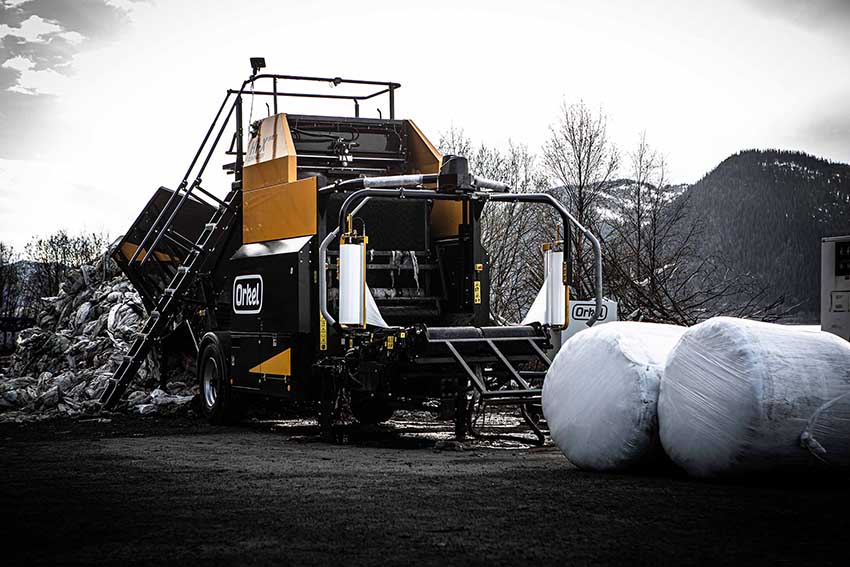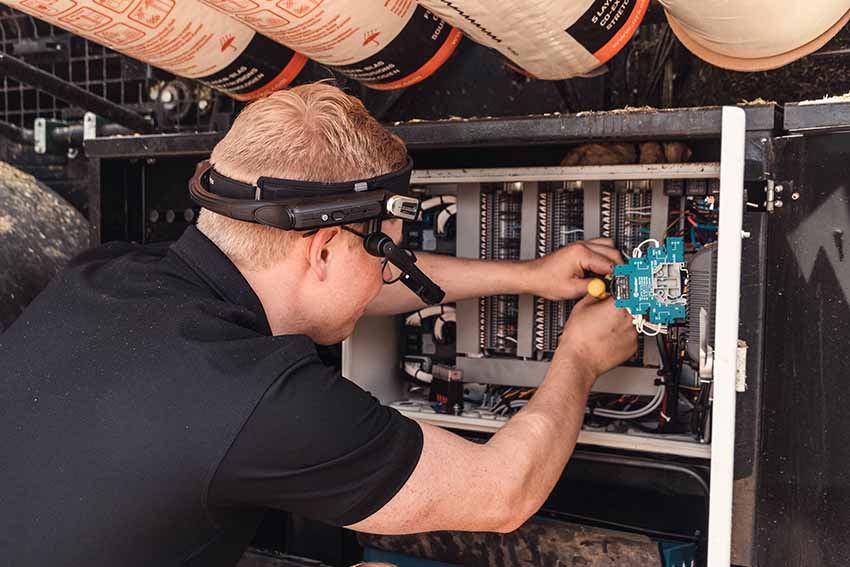Orkel AS is a Norwegian company with more than 70 years of experience as a machine manufacturer and technology developer, currently providing farmers and contractors a cutting-edge high-density baling technology for a more profitable and sustainable business practice.
Interview with Michael de Lima Ribeiro, Regional Sales Manager at Orkel AS.
Easy Engineering: What are the main areas of activity of the company?
Michael de Lima Ribeiro: Orkel manufactures compactors for agriculture and industry customers. Our compactors are capable of baling over 25 materials successfully, with several being added each year. Our focus is on user-friendliness, reliability, and performance. We deliver a range of robust and compact compactors that can perform at high speed without sacrificing density. Advanced tech that, at the same time, is simple to operate and easy to maintain.
E.E: What’s the news about new products?
M.d.L.R: We are expanding in both areas (agriculture and industry). In the industry segment by being a profitable solution in baling shredded materials, like SRF, which provides added value in the management of waste and recycling plants in “isolated” areas like island and archipelagos. Combined with our latest smart-tech solution Orkel Precision, our technology concept allows farmers, contractors, and businesses to monitor the machine, the bale, and the baling operation itself, facilitating decision making processes and better understand the internal value chain.

E.E: What are the ranges of products?
M.d.L.R: Orkel has 4 main models. In the industry segment the Orkel Hi-X and the Hi-X evo compactor bale shredded materials with high-calorific value such as SRF and RDF. We aim to optimize logistics and storage for waste and recycling plants, and being of great help to incineration plants by better managing production flow and downtime/maintenance periods. In the agricultural segment the Orkel Dens-X, MP2000-X and the MCs (1000, 850 and 850 flex) are used for agricultural bulk materials, such as maize silage, CCM, and grasses. Our tech enhances forage conservation and animal performance due to the high-density pressure in the bale chamber. As the machines are very easy to operate, compact, and mobile, they are highly appreciated in the contractor business.
E.E: At what stage is the market where you are currently active?
M.d.L.R: The market develops itself rapidly, demanding almost immediate response in terms of progress and development. We are constantly updating our software and following the customers closely, always looking for new ways to meet the customers’ needs. One great example is the implementation of Orkel Assist during the pandemic period. We could not be physically present everywhere during the lockdown, but we created channels to be able to assist customers efficiently and satisfactory even when we could not physically meet.

E.E: What can you tell us about market trends?
M.d.L.R: We believe in a more sustainable future, which can be achieved through efficiency and proper management. As resources are going to be more and more scarce and expensive, we will have to do more with less, which is where the bale acts as the perfect solution, conserving close to 100% of the bale content using Orkel High Density technology, leading to less need of land and resources. On a different note, you might also get healthier and better performing animals, requiring less antibiotics and reducing veterinary costs considerably. And all this by using a 100% natural forage, conserved naturally (no additives), resulting in better end products for us end consumers. The end goal is to be able to monitor the bale journey closely, understanding more about your bulk material like its weight, where it was baled, its content in terms of nutritional value and energy, and number of film layers, to mention a couple of things.
E.E: What are the most innovative products marketed?
M.d.L.R: The Orkel MP2000 compactor itself was a great innovation when released back in 2002, even being awarded a silver medal at the Agritechnica exhibition in Germany. But Orkel did not stop there. After the success of the first compactor, Orkel invested massively in user friendliness, performance, and efficiency, leading to more advanced hydraulics and a big sister to the MP, the Orkel Dens-X. In constant cooperation with contractors, farmers, and producers, we are noticing increased interest in precision farming. To assist this market, Orkel launched the Orkel Precision packages. Connecting the compactor to the cloud and allowing data to be gathered and stored, allowing a greater overview of the baling process and facilitating decision making processes in a later stage (regarding forage analysis, bale weight and quality), it seems to be really gathering speed and popularity among the current users.

E.E: What estimations do you have for 2022?
M.d.L.R: Due to the increasing interest in precision farming, agricultural productivity, and sustainable practices, we are noticing an increase in the interest for the baling technology applying high-density to superiorly conserve forages. Also, due to the draught and extreme temperatures, especially in southern Europe, many producers, farmers, and contractors are investing massively in baling as a guarantee for sufficient amounts of forage (and proper quality silage feed!) for their cattle.

